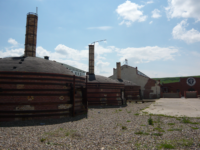Grant to allow U of L to purchase research equipment
By Jensen, Randy on July 17, 2020.
LETHBRIDGE HERALD
Thanks to funding from the Natural Sciences and Engineering Research Council of Canada (NSERC) Research Tools and Instruments (RTI) and the University of Lethbridge, researchers will soon have access to a suite of equipment that will help them unravel the key communication events in biomolecules.
“The Biomolecular Characterization Suite or BCS will provide us with cutting-edge infrastructure needed for the quality control analysis of a variety of biomolecules and their complexes,” says Trushar Patel, a professor in the U of L’s Department of Chemistry & Biochemistry, in a news release. “This is essential for the structural biophysical studies we conduct at the U of L.”
The BCS is comprised of four pieces of equipment that work together to give researchers information about the biomolecule’s size, shape, concentration and how they are bound together.
“As researchers, we need to make sure our molecules are really of good quality,” says Patel. “This cluster of instruments will give us the needed quality assurance of biomolecules and their complexes.”
The BCS will be useful to the U of L team of applicants from the Alberta RNA Research and Training Institute (ARRTI), including Hans-Joachim Wieden, who works with bacterial proteins for use in his research into antibiotic resistance; Ute Kothe, who works with yeast proteins; Tony Russell, who conducts research on the giardia parasite; and Borries Demeler, who works with biopolymers and nanoparticles.
“This equipment array could be used to make sure we have the right materials for research into drug use and understanding conformations when proteins are bound with nucleic acids,” says Patel. “For example, we need to determine high-resolution structures of proteins for target drug discovery and we can only determine the structures if we have the right quality of protein and this machine will tell us that.”
The addition of these instruments to the U of L’s existing infrastructure will not only attract scientists, but will provide students with valuable hands-on training opportunities.
“Students at the U of L can now get experience with the same biophysical infrastructure that’s available at other highly ranked universities,” Patel says. “Students will receive interdisciplinary training and access to sophisticated equipment that can help them secure high-value jobs in the future.”
The NSERC RTI program has provided $150,000 in support of the acquisition of BCS components.
12-11



